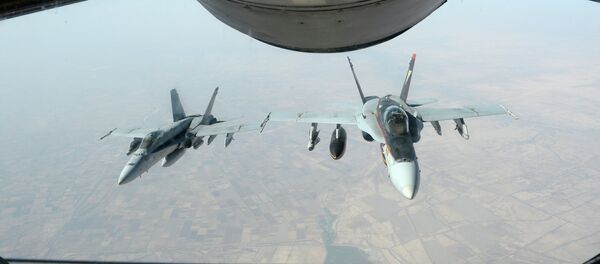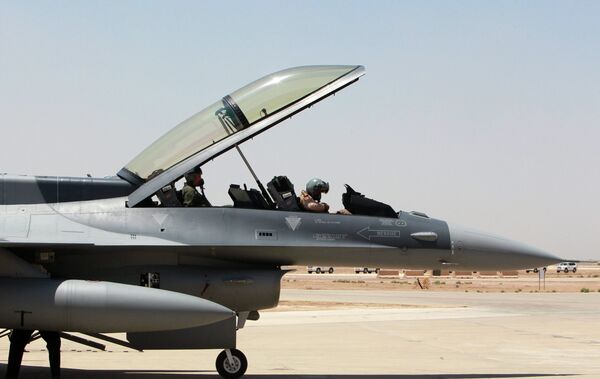In Barack Obama's last year in office the US has dropped 26,171 bombs in seven countries, Micah Zenko, a Senior Fellow at the Council on Foreign Relations (CFR), highlighted in his recent report, adding that "this estimate is undoubtedly low."
"In 2016, the United States dropped 3,027 more bombs — and in one more country, Libya — than in 2015. Most (24,287) were dropped in Iraq and Syria," Zenko stressed.
Speaking to Radio Sputnik Dr. Phyllis Bennis, the Director of the New Internationalism Project at the Washington Institute for Policy Studies, emphasized that what is more important than the number of bombs dropped is the number of people killed.
"We are looking at a policy that is based on airstrikes from drones, from planes, from helicopters, dropping bombs on people hoping that that they are getting the 'right people', which means people someone has told US intelligence officials are terrorists. They are either part of ISIS [Daesh], part of al-Qaeda, they may be part of something else," Bennis pointed out.
However, the crux of the matter is that no one can guarantee that the strikes are only killing the bad guys.
"Sometimes in a while they get lucky, they get it right, they get the person they are trying to get. But, one, there is no guarantee that that person is who he or she is purported to be; two, those people are almost always with other people…; and three, the notion of bombing terrorism doesn't work," she underscored.
Bennis highlighted that instead of eradicating terrorism, the US' military policy has actually sparked more terrorism and violence in the Middle East, Central Asia and North Africa.
"It's a failed strategy," the scholar noted.
According to Bennis, such a strategy indicates the government's unpreparedness to invest money, time and high-level attention in "real diplomacy" and in real development that would cope with root causes of terrorism.
Unfortunately, over the years the US' bombardments have become larger than in earlier years both in terms of numbers of countries that Washington has attacked and in terms of the number of strikes, the American scholar told Radio Sputnik.
Incredible as it may seem, the US' bombing campaign under Obama, the Nobel Peace Prize winner, has actually expanded compared with the George W. Bush era.
"The Bush wars were characterized by enormous deployments of US and NATO troops on the ground up to 150,000 at a time in Iraq and earlier in Afghanistan… The Obama version of the global war on terror has been characterized by bombing with far fewer troops on the ground," Bennis underscored.
The scholar believes that Obama's strategy has changed the nature of the war.
"It changes how the killing goes on," she noted, "it does make it much easier for people in the United States to really forget that there is a war going on at all, because there are virtually no Americans being killed."
Therefore Washington's bombing campaigns remain largely neglected by the US public, in contrast to wars in Vietnam, Afghanistan and other countries where large amounts of American troops were killed. A lot more attention was paid to these wars because the costs were felt at human level at home, the scholar explained.
While thefacts on the ground have proven that the strategy of bombardment does not work, the US continues to pursue the same policy.
According to Bennis, "the key reason has to do with money."
"When we hear these, sort of, serious conversations about 'Well, no one wants war', actually there are a few people who do, there are the people who profit from those wars… There are also those giant contracting companies who service the war industry," the American scholar emphasized.
Is it possible that in 2017 the world will be a more peaceful place?
Unlikely, the scholar believes.
She called attention to the fact that US President-elect Donald Trump is bringing "far too many military people" into his cabinet.
"If you are a hammer everything looks like a nail, if you are a general every problem seems to require a military solution," Bennis stressed.
Have you heard the news? Sign up to our Telegram channel and we'll keep you up to speed!






